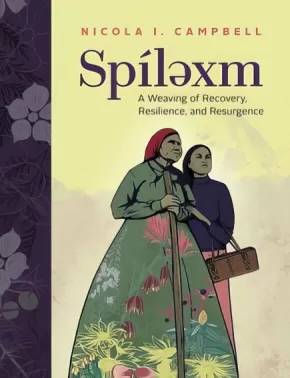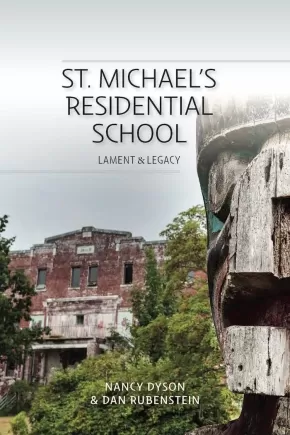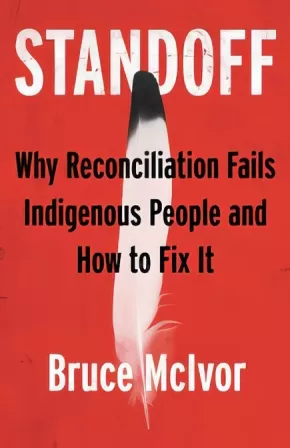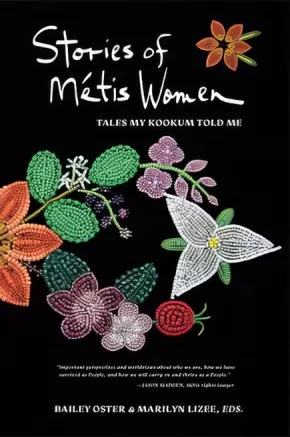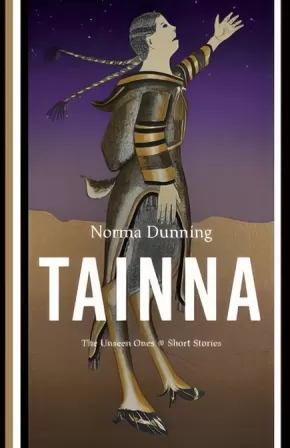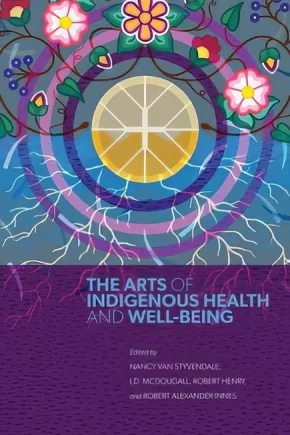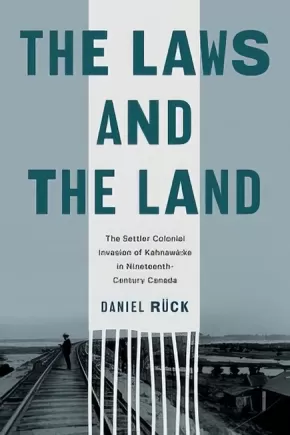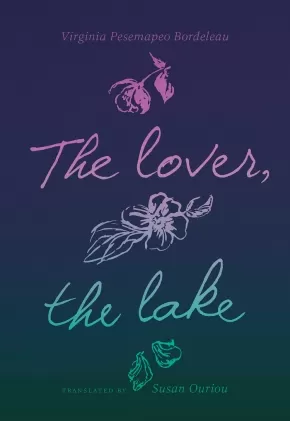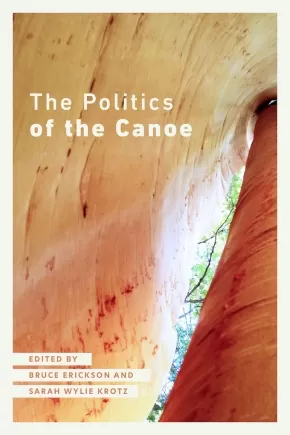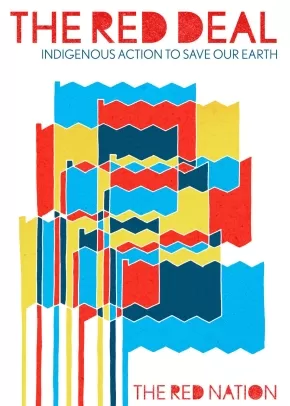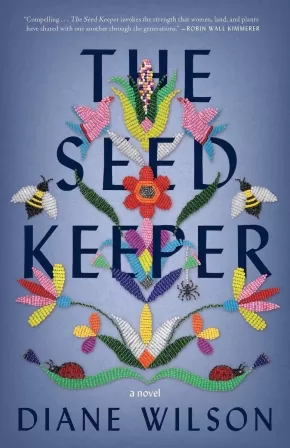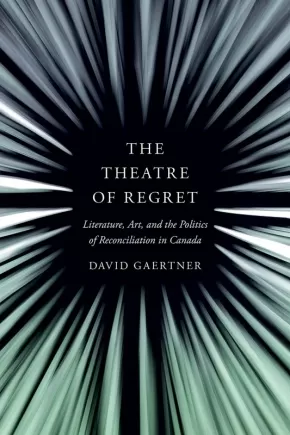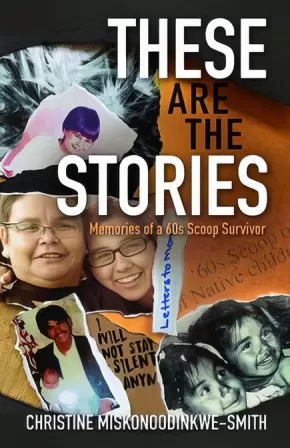Indigenous Studies
Synopsis:
In this extraordinary memoir, best-selling author Nicola I. Campbell deftly weaves rich poetry and vivid prose into a story basket of memories orating what it means to be an intergenerational survivor of Indian Residential Schools.
If the hurt and grief we carry is a woven blanket, it is time to weave ourselves anew. We can’t quit. Instead, we must untangle ourselves from the negative forces that have impacted our existence as Indigenous people.
Similar to the “moccasin telegraph,” Spíləxm are the remembered stories, also “events or news” in the Nłeʔkepmx language. These stories were often shared over tea, in the quiet hours between Elders. Rooted within the British Columbia landscape, and with an almost tactile representation of being on the land and water, Spíləxm explores resilience, reconnection, and narrative memory through stories.
Captivating and deeply moving, this exceptional memoir tells of one Indigenous woman’s journey of overcoming adversity and colonial trauma to find strength and resilience through creative works and traditional perspectives of healing, transformation, and resurgence.
Reviews
Additional Information
304 pages | 6.50" x 8.50" | Hardcover
Synopsis:
One of the few accounts by care-givers in an Indian Residential School describing the horrific conditions.
In 1970, the authors, Nancy Dyson and Dan Rubenstein, were hired as childcare workers at the Alert Bay Student Residence (formerly St. Michael's Indian Residential School) on northern Vancouver Island. Shocked when Indigenous children were forcibly taken from their families, punished for speaking their native language, fed substandard food and severely disciplined for minor offences, Dan and Nancy questioned the way the school was run with its underlying missionary philosophy. When a delegation from the Department of Indian and Northern Affairs visited St. Michael's, the couple presented a long list of concerns, which were ignored. The next day they were dismissed by the administrator of the school. Some years later, in 2015, the Truth and Reconciliation Commission Reports were released. The raw grief and anger of residential school survivors were palpable and the authors' troubling memories of St. Michael's resurfaced. Dan called Reconciliation Canada, and Chief Dr. Robert Joseph encouraged the couple to share their story with today's Canadians.
St. Michael's Residential School: Lament and Legacy is a moving narrative - one of the few told by caregivers who experienced on a daily basis the degradation of Indigenous children. Their account will help to ensure that what went on in the Residential Schools is neither forgotten nor denied.
Additional Information
200 pages | 6.00" x 9.00"
Synopsis:
Faced with a constant stream of news reports of standoffs and confrontations, Canada’s “reconciliation project” has obviously gone off the rails. In this series of concise and thoughtful essays, lawyer and historian Bruce McIvor explains why reconciliation with Indigenous peoples is failing and what needs to be done to fix it.
Widely known as a passionate advocate for Indigenous rights, McIvor reports from the front lines of legal and political disputes that have gripped the nation. From Wet’suwet’en opposition to a pipeline in northern British Columbia, to Mi’kmaw exercising their fishing rights in Nova Scotia, McIvor has been actively involved in advising First Nation clients, fielding industry and non-Indigenous opposition to true reconciliation, and explaining to government officials why their policies are failing.
McIvor’s essays are honest and heartfelt. In clear, plain language he explains the historical and social forces that underpin the development of Indigenous law, criticizes the current legal shortcomings and charts a practical, principled way forward.
By weaving in personal stories of growing up Métis on the fringes of the Peguis First Nation in Manitoba and representing First Nations in court and negotiations, McIvor brings to life the human side of the law and politics surrounding Indigenous peoples’ ongoing struggle for fairness and justice. His writing covers many of the most important issues that have become part of a national dialogue, including systemic racism, treaty rights, violence against Indigenous people, Métis identity, the United Nations Declaration on the Rights of Indigenous People (UNDRIP) and the duty to consult.
McIvor’s message is consistent and powerful: if Canadians are brave enough to confront the reality of the country’s colonialist past and present and insist that politicians replace empty promises with concrete, meaningful change, there is a realistic path forward based on respect, recognition and the implementation of Indigenous rights.
Additional Information
208 pages | 5.50" x 8.50" | Paperback
Synopsis:
This book, and accompanying Vimeo documentary link, is a collection of stories about culture, history, and nationhood as told by Métis women. The Métis are known by many names — Otipemisiwak, “the people who own ourselves;” Bois Brules, “Burnt Wood;” Apeetogosan, “half brother” by the Cree; “half-breed,” historically; and are also known as “rebels” and “traitors to Canada.” They are also known as the “Forgotten People.” Few really know their story.
Many people may also think that Métis simply means “mixed,” but it does not. They are a people with a unique and proud history and Nation. In this era of reconciliation, Stories of Métis Women explains the story of the Métis Nation from their own perspective. The UN has declared this “The Decade of Indigenous Languages” and Stories of Métis Women is one of the few books available in English and Michif, which is an endangered language.
Reviews
"With this book, some of these important and unique perspectives and worldviews about who we are as a people, how we have survived as people and how we will carry on and thrive as a people are shared through the writings of the daughters, mothers, aunties and grandmothers of the Métis Nation. I congratulate the Métis women who have taken the time to share and write down some of this knowledge for generations to come." —Jason Madden, Métis rights lawyer and citizen of the Métis Nation
Additional Information
240 pages | 6.00" x 9.00" | 50 black and white illustrations | Paperback
Synopsis:
Drawing on both lived experience and cultural memory, Norma Dunning brings together six powerful new short stories centred on modern-day Inuk characters in Tainna. Ranging from homeless to extravagantly wealthy, from spiritual to jaded, young to elderly, and even from alive to deceased, Dunning’s characters are united by shared feelings of alienation, displacement and loneliness resulting from their experiences in southern Canada.
In Tainna—meaning “the unseen ones” and pronounced Da‑e‑nn‑a—a fraught reunion between sisters Sila and Amak ends in an uneasy understanding. From the spirit realm, Chevy Bass watches over his imperilled grandson, Kunak. And in the title story, the broken-hearted Bunny wanders onto a golf course on a freezing night, when a flock of geese stand vigil until her body is discovered by a kind stranger.
Norma Dunning’s masterful storytelling uses humour and incisive detail to create compelling characters who discover themselves in a hostile land where prejudice, misogyny and inequity are most often found hidden in plain sight. There, they must rely on their wits, artistic talent, senses of humour and spirituality for survival; and there, too, they find solace in shining moments of reconnection with their families and communities.
Awards
- 2021 Governor General's Literary Award for English-language fiction
Additional Information
160 pages | 5.50" x 8.50"
Synopsis:
Drawing attention to the ways in which creative practices are essential to the health, well-being, and healing of Indigenous peoples, The Arts of Indigenous Health and Well-Being addresses the effects of artistic endeavour on the “good life”, or mino-pimatisiwin in Cree, which can be described as the balanced interconnection of physical, emotional, spiritual, and mental well-being. In this interdisciplinary collection, Indigenous knowledges inform an approach to health as a wider set of relations that are central to well-being, wherein artistic expression furthers cultural continuity and resilience, community connection, and kinship to push back against forces of fracture and disruption imposed by colonialism.
The need for healing—not only individuals but health systems and practices—is clear, especially as the trauma of colonialism is continually revealed and perpetuated within health systems. The field of Indigenous health has recently begun to recognize the fundamental connection between creative expression and well-being. This book brings together scholarship by humanities scholars, social scientists, artists, and those holding experiential knowledge from across Turtle Island to add urgently needed perspectives to this conversation. Contributors embrace a diverse range of research methods, including community-engaged scholarship with Indigenous youth, artists, Elders, and language keepers.
The Arts of Indigenous Health and Well-Being demonstrates the healing possibilities of Indigenous works of art, literature, film, and music from a diversity of Indigenous peoples and arts traditions. This book will resonate with health practitioners, community members, and any who recognize the power of art as a window, an entryway to access a healthy and good life.
Reviews
“There is a genuinely beautiful life-force at work in this text: it’s artful and creative, readable and forceful. The objectives and scholarship throughout The Arts of Indigenous Health and Wellbeing are clear, grounded, rigorous and likely to make important contributions to knowledge and conversations about Indigenous health and the humanities in times and space of contemporary coloniality.” — Sarah de Leeuw
"The unique content of The Arts of Indigenous Health and Wellbeing may be useful for communities to heal, and to preserve cultural and traditional knowledge that can be passed down in the written form. The content can spark dialogue and learning by being discussed and used by families, generations, health providers/healers and a wide array of learners.”— Margot Latimer
Educator Information
Table of Contents
Ch 1: What This Pouch Holds
Ch 2: Baskets, Birchbark Scrolls, and Maps of Land: Indigenous Making Practices as Oral Historiography
Ch 3: For Kaydence and her Cousins: Health and Happiness in Cultural Legacies and Contemporary Contexts
Ch 4: Stories and Staying Power: Art-Making as (Re)Source of Cultural Resilience and Well-Being for Panniqtumiut
Ch 5: Healthy Connections: Facilitators’ Perceptions of Programming Linking Arts and Wellness with Indigenous Youth
Ch 6: Narrating Relations: Genetic Ancestry Testing and Alternarratives of Queer Kinship
Ch 7: The Doubleness of Sound in Canada’s Indian Residential Schools
Ch 8 Kissed by Lightning: Mediating Haudenosaunee Traditional Teachings through Film
Ch 9: Minobimaadiziwinke (Creating a Good Life): Native Bodies Healing
Ch 10: Body Counts: War, Pesticides and Queer Spirituality in Cherríe Moraga’s Heroes and Saints
Ch 11: “The Song of the Starved Soul”
Ch 12 Sakihiwawin: Land’s Overflow into the space-tial “Otherwise”
Additional Information
240 pages | 6.00" x 9.00" | Paperback
Synopsis:
In a world that requires knowledge and wisdom to address developing crises around us, The Gatherings shows how Indigenous and non-Indigenous peoples can come together to create meaningful and lasting relationships.
Thirty years ago, in Wabanaki territory – a region encompassing the state of Maine and the Canadian Maritimes – a group of Indigenous and non-Indigenous individuals came together to explore some of the most pressing questions at the heart of Truth and Healing efforts in the United States and Canada. Meeting over several years in long-weekend gatherings, in a Wabanaki-led traditional Council format, assumptions were challenged, perspectives upended, and stereotypes shattered. Alliances and friendships were formed that endure to this day.
The Gatherings tells the moving story of these meetings in the words of both Indigenous and non-Indigenous participants. Reuniting to reflect on how their lives were changed by their experiences and how they continue to be impacted by them, the participants share the valuable lessons they learned.
The many voices represented in The Gatherings offer insights and strategies that can inform change at the individual, group, and systems levels. These voices affirm that authentic relationships between Indigenous and non-Indigenous peoples – with their attendant anxieties, guilt, anger, embarrassments, and, with time, even laughter and mutual affection – are key to our shared futures here in North America. Now, more than ever, it is critical that we come together to reimagine.
Reviews
“Very impressive. The contributions of these men and women are noteworthy and deserve to be read and available to all persons who are interested and want to learn from them.” — The Hon. Graydon Nicholas, Chancellor and Endowed Chair in Native Studies, St. Thomas University, and Former Lieutenant Governor of New Brunswick
“Shirley N. Hager’s gentle and affirming spirit shines through as she introduces the reader to this unique, collective experience. I felt so much gratitude for each participant, opening themselves to let strangers in.” — Beth Clifford, Curriculum Coordinator, Maine Indian Education
“I had intended to only take a quick look at the book and come back to it later, but once I started reading I couldn’t stop. The Gatherings is a very well-constructed book of great importance both as a cultural document and as a tool for teaching and learning.”
Educator Information
Mawopiyane
Gwen Bear
The Reverend Shirley Bowen
Alma H. Brooks/Zapawey-kwey
gkisedtanamoogk
JoAnn Hughes
Debbie Leighton
Barb Martin
Miigam’agan
T. Dana Mitchell
Wayne A. Newell
Betty Peterson
Marilyn Keyes Roper
Wesley Rothermel
Afterword by Dr. Frances Hancock
To reflect the collaborative nature of this project, the word Mawopiyane is used to describe the full group of co-authors. Mawopiyane, in Passamaquoddy, literally means "let us sit together," but the deeper meaning is of a group coming together, as in the longhouse, to struggle with a sensitive or divisive issue – but one with a very desirable outcome. It is a healing word and one that is recognizable in all Wabanaki languages.
Table of Contents
Foreword
With Gratitude
Notes on Terminology
Introduction
Gathering
The Talking Circle
Miigam’agan
Wayne
Gwen
Dana
Alma
Barb
gkisedtanamoogk
Shirley H.
Debbie
Shirley B.
Wesley
Marilyn
Betty
JoAnn
The Last Gathering
The Decision
Hindsight
The Gatherings: May 1987 to May 1993
Creating This Book
The Giveaway Blanket
The Circle and Ceremony
The Circle and Decision Making
Ceremony: Protect or Share It?
Allies, Friends, Family
Beginnings
The Women Compare Notes
The Relationship Evolves
Mutuality
How We Got Here
The Doctrine of Discovery
But What about the Treaties?
The Personal Is Political
Economic Self-Determination
Beginning to Make Amends
Some Progress ... and a Long Way to Go
How It Could Be Different
Being Here Legitimately
Acknowledging First Peoples/Honoring the Treaties
An Indigenous Worldview
The Need for Gathering Spaces
Creating a Gathering Space
Working Together on a Cause
Humility versus “White Guilt”
Non-Natives Working with Our Own People
Entering the Longhouse
Being in the Relationship: An Afterword by Dr. Frances Hancock
Appendix: How This Book Came to Be
Notes
Suggested Resources
Contributors
Map: Location of the Gatherings
Reader’s Guide
Index
Additional Information
304 pages | 6.00" x 9.00" | 23 illustrations
Authenticity Note: This book's contributors are Indigenous and non-Indigenous. Readers must determine if this works as an authentic Indigenous work for their purposes.
Synopsis:
White settlers saw land for the taking. They failed to consider the perspective of the people already here.
In The Land Is Not Empty, author Sarah Augustine unpacks the harm of the Doctrine of Discovery—a set of laws rooted in the fifteenth century that gave Christian governments the moral and legal right to seize lands they “discovered” despite those lands already being populated by indigenous peoples. Legitimized by the church and justified by a misreading of Scripture, the Doctrine of Discovery says a land can be considered “empty” and therefore free for the taking if inhabited by “heathens, pagans, and infidels.”
In this prophetic book, Augustine, a Pueblo woman, reframes the colonization of North America as she investigates ways that the Doctrine of Discovery continues to devastate indigenous cultures, and even the planet itself, as it justifies exploitation of both natural resources and people. This is a powerful call to reckon with the root causes of a legacy that continues to have devastating effects on indigenous peoples around the globe and a call to recognize how all of our lives and our choices are interwoven.
What was done in the name of Christ must be undone in the name of Christ, the author claims. The good news of Jesus means there is still hope for the righting of wrongs. Right relationship with God, others, and the earth requires no less.
Additional Information
224 pages | 5.25" x 8.00"
Synopsis:
As the settler state of Canada expanded into Indigenous lands, settlers dispossessed Indigenous people and undermined their sovereignty as nations. One site of invasion was Kahnawà:ke, a Kanien’kehá:ka community and part of the Rotinonhsiónni confederacy.
The Laws and the Land delineates the establishment of a settler-colonial relationship from early contact ways of sharing land; land practices under Kahnawà:ke law; the establishment of modern Kahnawà:ke in the context of French imperial claims; intensifying colonial invasions under British rule; and ultimately the Canadian invasion in the guise of the Indian Act, private property, and coercive pressure to assimilate. Daniel Rück reveals increasingly powerful and aggressive colonial governments interfering with the affairs of one of the most populous and influential Indigenous communities in nineteenth-century Canada. What he describes is an invasion spearheaded by bureaucrats, Indian agents, politicians, surveyors, and entrepreneurs. Although these invasions were often chaotic and poorly planned, Rück shows that despite their apparent weaknesses they tended to benefit settlers while becoming sources of oppression for Indigenous peoples who attempted to navigate colonial realities while defending and building their own nations.
This original, meticulously researched book is deeply connected to larger issues of human relations with environments, communal and individual ways of relating to land, legal pluralism, historical racism and inequality, and Indigenous resurgence. It is one story of the "slow violence" of Canada’s legal and environmental conquest of Indigenous peoples and lands, and the persistence of one Indigenous nation in the face of the onslaught.
This book will appeal to legal historians, historical geographers, and scholars of Quebec history, Canadian history, and Indigenous studies.
Reviews
"In this excellent book, Daniel Rück has woven a seamless web of law, history, geography, and Indigenous knowledge, and has made it all look easy." — Philip Girard, professor, Osgoode Hall Law School, York University
"The Laws and the Land is an account of colonial harm. It is an unprecedented look at the dispossession and oppression of the People of Kahnawà:ke by slowly taking their lands away. This book is a must-read for our People but also for all Indigenous peoples who have been dispossessed by the settler governments, churches, and unscrupulous individuals. And it also shows the perseverance and survival of a Mohawk community." — Kenneth Deer, former secretary of the Mohawk Nation at Kahnawà:ke and honorary doctor of laws, Concordia University
Educator Information
Table of Contents
Introduction
1 Kahnawà:ke and Canada: Relationships of Laws and Lands
2 "Whereas the Seigniory of Sault St. Louis Is the Property of the Iroquois Nation": Dissidents, Property, and Power, 1790–1815
3 "Out of the beaten track": Before the Railroad, 1815–50
4 "In What Legal Anarchy Will Questions of Property Soon Find Themselves": The Era of Confederation, 1850–75
5 "The Consequences of This Promiscuous Ownership": Wood and the Indian Act, 1867–1883
6 "Equal to an Ordnance Map of the Old Country": The Walbank Survey, 1880–93
7 "It is Necessary to Follow the Custom of the Reserve Which is Contrary to Law": Rupture and Continuity, 1885–1900
Conclusion
Notes; Bibliography; Index
Additional Information
336 pages | 6.00" x 9.00" | 27 b&w photos, 5 maps | Hardcover
Synopsis:
A spellbinding novel celebrating Indigenous sensuality; the first erotic novel written by an Indigenous woman in French, now available in English.
When it was first published in Quebec, The Lover, The Lake was heralded as the first erotic novel written by an Indigenous woman in French. Today, as it is translated into English for the first time, author Virginia Pesemapeo Bordeleau would rather call it a celebration of sensuality, another first. At a time when Indigenous peoples were being dispossessed of their land and history as well as their relationship to the body, the love explored by Wabougouni and Gabriel is an act of defiance. Their intimate connection plays out on the shores of Lake Abitibi in an affair as turbulent and unfathomable as the lake itself.
"The aim here is to break free of the bonds of wounds the priests' abuse has left on our bodies and souls, wounds linked to loss--of land, of intimate spaces, of identity both as an individual and community member, of sexual identity, of delight in the body, of innocence and the uncomplicated nature of lovemaking. My hope is that this novel will serve to unearth the seed of joy buried deep in our culture, still profoundly alive . . . The Lover, The Lake shows us that we are not just suffering and victims: we can also be pleasure." -- Virginia Pesemapeo Bordeleau, from the prologue
Reviews
"A gift to its readers." - Montreal Review of Books
"Both raw and poetic... about healing and continuance... May more French Indigenous writing find its way into English." - Globe and Mail
Additional Information
170 pages | 5.50" x 8.00"
Synopsis:
Popularly thought of as a recreational vehicle and one of the key ingredients of an ideal wilderness getaway, the canoe is also a political vessel. A potent symbol and practice of Indigenous cultures and traditions, the canoe has also been adopted to assert conservation ideals, feminist empowerment, citizenship practices, and multicultural goals. Documenting many of these various uses, this book asserts that the canoe is not merely a matter of leisure and pleasure; it is folded into many facets of our political life.
Taking a critical stance on the canoe, The Politics of the Canoe expands and enlarges the stories that we tell about the canoe’s relationship to, for example, colonialism, nationalism, environmentalism, and resource politics. To think about the canoe as a political vessel is to recognize how intertwined canoes are in the public life, governance, authority, social conditions, and ideologies of particular cultures, nations, and states.
Almost everywhere we turn, and any way we look at it, the canoe both affects and is affected by complex political and cultural histories. Across Canada and the U.S., canoeing cultures have been born of activism and resistance as much as of adherence to the mythologies of wilderness and nation building. The essays in this volume show that canoes can enhance how we engage with and interpret not only our physical environments but also our histories and present-day societies.
Reviews
“An engaging study of where the canoe finds itself in post Truth and Reconciliation Commission Canada. From being coopted and used by settlers as a symbol of Canadian nationalism, this collection of essays from academics, activists, and community leaders demonstrates how the canoe has been reclaimed by Indigenous people and is being used as a powerful tool for to build Indigenous sovereignty and heal communities.” – Dale Barbour, Department of History, Brandon University
Educator Information
Contributors Include: Cameron Baldassarra, Hillary Beattie, Albert Braz, Frank Brown, Vina Brown, Chris Ling Chapman, Chuck Commanda, Rachel L. Cushman, Jon D. Daehnke, Jessica Dunkin, Danielle Gendron, Jonathan Goldner, Tony A. Johnson, Ian Mauro, Larry McDermott, Sarah Nelson, Peter H. Wood, John B. Zoe
Topics: Indigenous Studies, Social History, Sports and Recreation
Additional Information
272 pages | 6.00" x 9.00" | 40 b&w illustrations, maps, index, bibliography
Authenticity Note: This book has received out authentic Indigenous text label because it contains Indigenous contributions. It is up to readers to determine if it's authentic for their purposes.
Synopsis:
When the Red Nation released their call for a Red Deal, it generated coverage in places from Teen Vogue to Jacobin to the New Republic, was endorsed by the DSA, and has galvanized organizing and action. Now, in response to popular demand, the Red Nation expands their original statement filling in the histories and ideas that formed it and forwarding an even more powerful case for the actions it demands.
One-part visionary platform, one-part practical toolkit, the Red Deal is a platform that encompasses everyone, including non-Indigenous comrades and relatives who live on Indigenous land. We—Indigenous, Black and people of color, women and trans folks, migrants, and working people—did not create this disaster, but we have inherited it. We have barely a decade to turn back the tide of climate disaster. It is time to reclaim the life and destiny that has been stolen from us and riseup together to confront this challenge and build a world where all life can thrive. Only mass movements can do what the moment demands. Politicians may or may not follow--it is up to them--but we will design, build, and lead this movement with or without them.
The Red Deal is a call for action beyond the scope of the US colonial state. It’s a program for Indigenous liberation, life, and land—an affirmation that colonialism and capitalism must be overturned for this planet to be habitable for human and other-than-human relatives to live dignified lives. The Red Deal is not a response to the Green New Deal, or a “bargain” with the elite and powerful. It’s a deal with the humble people of the earth; a pact that we shall strive for peace and justice and a declaration that movements for justice must come from below and to the left.
Reviews
“The Red Nation has given us The Red Deal, an Indigenous Peoples’ world view and practice that leads to profound changes in existing human relations. Five hundred years of European colonialism, which produced capitalist economic and social relations, has nearly destroyed life itself. Technology can be marshaled to reverse this death march, but it will require a vision for the future and a path to follow to arrive there, and that is what The Red Deal provides.”—Roxanne Dunbar-Ortiz, author of An Indigenous Peoples’ History of the United States
"The Red Deal is an incendiary and necessary compilation. With momentum for a Green New Deal mounting, the humble and powerful organizers of The Red Nation remind us that a Green New Deal must also be Red—socialist, committed to class struggle, internationalist in orientation, and opposed to the settler-colonial theft of Indigenous lands and resources. Redistribution also requires reparations and land back. The Red Deal is a profound call to action for us all."—Harsha Walia, author of Undoing Border Imperialism and Border and Rule: Global Migration, Capitalism, and the Rise of Racist Nationalism
“We really need The Red Deal because it forces open a critical conversation on how Land Back can be a platform for mass mobilization and collective struggle. The Red Deal poignantly argues that if we do not foreground decolonization and Indigenous liberation in climate justice strategies such as the Green New Deal, we will reproduce the violence of the original New Deal that dammed life-giving rivers and further dispossessed Indigenous peoples of their lands. Strategically, The Red Deal shows how, if we understand green infrastructure and economic restructuring as anticolonial struggle, as well as an anticapitalist, we can move from reforms that deny Indigenous jurisdiction towards just coalitions for repossession that radically rethink environmental policy and land protection without sacrificing Indigenous life and relations.”—Shiri Pasternak, author of Grounded Authority: The Algonquins of Barriere Lake Against the State
“The Red Deal asserts that the fight for climate justice must center Native people when it comes to the issues that disproportionately impact Native communities, but it also communicates what the Green New Deal does not — namely, that public lands are stolen lands and climate change is significantly caused by just a few industries, which the government has at worst neglected to hold accountable and at best assisted in their efforts to mine the earth for resources in a move that put profits over people.” —Teen Vogue
“For the Red Nation, living and being interdependent with Mother Nature is explicitly anticapitalist. An ethos merely hinted at in the Green New Deal, The Red Deal understands that capitalism fundamentally protects wealth, not life”—The Politic
“The Red Nation also names Black abolitionists as an inspiration for the Red Deal, citing the links between mass incarceration and detention and climate change. They further note that police departments, prisons, and the U.S. military receive billions of taxpayer dollars annually while doing irreparable harm to Native Americans, Black people, and the Earth.” —Essence
Educator Information
Excerpt from the book:
The Red Deal begins with the oldest yet often forgotten struggle on this continent: ending the occupation. While usually erased from the history of this nation, settler colonial occupation has fundamentally shaped the development of the United States and indeed the world that it dominates economically and politically. Ending the occupation links those of us in the seat of empire with those who face its weapons, soldiers, and policies around the world. Together we share the common enemy of US imperialism, and Indigenous people here have fought against it since the first settlers began to occupy our lands by force. It is important to remember that the very first act of US imperialism was the military and settler incursions on Indigenous land as the fledgling colonies expanded westward. This is why we begin with ending the occupation.
The struggle against occupation on this continent has remained strong throughout history and continues to this day. We’ve seen this in the global uprisings led by Black relatives who have been resisting the colonization of Africa and the enslavement and oppression of African people stolen to work on this continent for centuries. The uprisings during the summer of 2020, even with the global COVID-19 pandemic, built upon the decades of Black resistance to police violence and the everyday brutality of American society towards Black people, and exploded into some of the largest mobilizations in US history. The spread of uprisings throughout cities across the country was also marked by the sharpening of tactics and clarity of the roots of the issues, with images of burnt down police precincts and flipped cop cars evoking memories of Black and Indigenous resistance to slave plantations and frontier forts. Calls for abolition of police and prisons arose with renewed volume, stretching forward from a long history of abolitionist struggle.
It is important that we continue nurturing these histories and movements of struggle against occupation on these lands and continue to build relationships with others globally who face the violence of occupation. We begin with addressing those things that act as obstacles to our collective liberation: the prisons and detention centers filled with our family members; the police officers and prison guards who stand between us and the capitalist interests they defend; and the military, police, and vigilantes who murder our relatives. As we know, colonial occupation is upheld by constant threats of violence and in many instances, actual violence. It is therefore no surprise that these obstacles to our life and wellbeing that employ violence in order to maintain the occupation, receive the largest proportions of resources by the US settler state. We seek to dismantle these institutions that get in our way of living good lives, and we aim to divert resources away from them through divestment.
This is just the first step, though. It is not enough to be against any one thing, even something as big, evil, and all-encompassing as colonial occupation. Ending the occupation gives us the space to breathe and envision other possibilities that we are for, and we must be clear about what we are for. We are for Indigenous life, for the life of all human and other-than-human beings. And in order to live good lives, we must heal ourselves from the destruction caused by colonialism and capitalism by stopping what harms us and desecrates our land and begin to build what will sustain us.
Additional Information
144 pages | 5.00" x 7.00" | b&w illustrations
Authenticity Note: The Red Nation is a coalition of Native and non-Native activists, educators, students, and community organizers advocating Native liberation. The Red Deal was written collectively by members of the Red Nation and the allied movements and community members who comprised the Red Deal coalition. Everyone from youth to elders; from knowledge keepers to farmers contributed to the creation of The Red Deal. It's up to readers to determine if this title works as an authentic resource for their purposes
Synopsis:
A haunting novel spanning several generations, The Seed Keeper follows a Dakota family’s struggle to preserve their way of life, and their sacrifices to protect what matters most.
Rosalie Iron Wing has grown up in the woods with her father, Ray, a former science teacher who tells her stories of plants, of the stars, of the origins of the Dakota people. Until, one morning, Ray doesn’t return from checking his traps. Told she has no family, Rosalie is sent to live with a foster family in nearby Mankato—where the reserved, bookish teenager meets rebellious Gaby Makespeace, in a friendship that transcends the damaged legacies they’ve inherited.
On a winter’s day many years later, Rosalie returns to her childhood home. A widow and mother, she has spent the previous two decades on her white husband’s farm, finding solace in her garden even as the farm is threatened first by drought and then by a predatory chemical company. Now, grieving, Rosalie begins to confront the past, on a search for family, identity, and a community where she can finally belong. In the process, she learns what it means to be descended from women with souls of iron—women who have protected their families, their traditions, and a precious cache of seeds through generations of hardship and loss, through war and the insidious trauma of boarding schools.
Weaving together the voices of four indelible women, The Seed Keeper is a beautifully told story of reawakening, of remembering our original relationship to the seeds and, through them, to our ancestors.
Reviews
“With compelling characters and images that linger long after the final page is turned, The Seed Keeper invokes the strength that women, land, and plants have shared with one another through the generations.”—Robin Wall Kimmerer, author of Braiding Sweetgrass: Indigenous Wisdom, Scientific Knowledge, and the Teachings of Plants
“As seeds are a gift from one generation to another, the song and the word of the seeds return to us, reminding us of our covenant, and also of the promise of love and rebirth. Always, I remember the Zapatista proverb ‘They thought they buried us, they forgot that we were seeds.’ That we are, and Diane Wilson’s narrative of intergenerational loss and rebirth fills my heart with gratitude.”—Winona LaDuke, author of Recovering the Sacred: The Power of Naming and Claiming
“A gracefully told story of continuity through seeds saved and nurtured by Dakota women, The Seed Keeper is lush and sustaining—a read that feeds heart and spirit in the same way as do the gardens that are their legacy.”—Linda LeGarde Grover, author of Onigamiising: Seasons of an Ojibwe Year
Additional Information
440 pages | 5.50" x 8.50"
Synopsis:
The Canadian public largely understands reconciliation as the harmonization of Indigenous–settler relations for the benefit of the nation. But is this really happening? Reconciliation politics, as developed in South America and South Africa, work counter to retributive justice. The Theatre of Regret asks whether – within the contexts of settler colonialism – the approach to reconciliation will ultimately favour the state over the needs and requirements of Indigenous peoples.
Interweaving literature, art, and other creative media throughout his analysis, David Gaertner questions the state-centred frameworks of reconciliation by exploring the critical roles that Indigenous and allied authors play in defining, challenging, and refusing settler regret. In 2007, Canada became the first liberal democracy to formally implement a Truth and Reconciliation Commission (TRC) process, a prominent element of global intrastate politics in the 1990s. Through close examination of core concepts in reconciliation theory – acknowledgment, apology, redress, and forgiveness – Gaertner unpacks reconciliation within the contexts of Canadian settler colonialism and the international history of the TRC. In so doing, he exposes the deeply embedded colonial ideologies that often define reconciliation in settler-colonial states.
The Theatre of Regret redirects current debates about reconciliation and provides a roadmap for the deconstruction of state-centred discourses of regret.
Reviews
"The Theatre of Regret makes a vital contribution to discussions about reconciliation in Canada by foregrounding the importance of Indigenous literatures for engaging, troubling, and, most crucially, speaking far beyond reconciliation’s limits. Gaertner listens deeply to how Indigenous artists speak truths that cannot be unheard and give resonant voice to world-altering ways of living in good relation." — Pauline Wakeham, coeditor of Reconciling Canada: Critical Perspectives on the Culture of Redress
Educator Information
Scholars and students of Indigenous studies, cultural studies, Canadian studies, literature, law, and political science will find this book challenging and necessary, as will thoughtful Canadian readers.
Table of Contents
Introduction: Bearing Witness to the TRC
1 The Theatre of Regret: The Politics of Reconciliation after the Second World War
2 Listen to the Bones: Colonial Static and the Call for Reconciliation
3 To Acknowledge, but Not to Accept: Critical Reflections on Settler State Apologies
4 Redress as a Gift: Historical Reparations and the Logic of the Gift
5 An Exercise in Forgiveness: Confronting the Risk of Forgiveness and Empathy
Conclusion: “Shallow Reconciliation” and the Indigenous Future Imaginary
Notes, Selected Bibliography, Index
Additional Information
320 pages | 6.00" x 9.00" | Paperback
Synopsis:
These are the Stories is a memoir presented in short chapters, comprising the life of a survivor of the Sixties Scoop. Christine Miskonoodinkwe Smith reveals her experiences in the child welfare system and her journey towards healing in various stages of her life. As an adult, she was able to reconnect with her birth mother. Though her mother passed shortly afterward, that reconnection allowed the author to finally feel "complete, whole, and home." The memoir details some of the author's travels across Canada as she eventually made a connection with the Peguis First Nation in Manitoba.
A memoir in the vein of Colleen Hele Cardinal's Raised Somewhere Else and Alicia Elliot's A Mind Spread Out On the Ground, These are the Stories is an inspirational and courageous telling of a life story.
Additional Information
170 pages | 5.50" x 8.50" | Paperback

